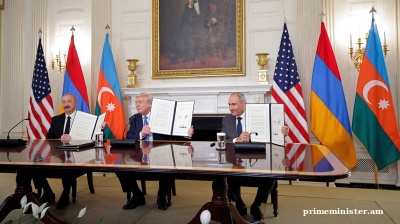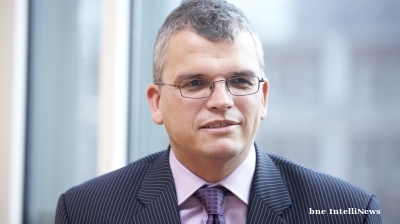It used to be the case that major events and game-changing actions in, or concerning, Russia most often occurred in August. It was a month in which Russian people looked forward to vacation and a last chance to enjoy outdoor living before the rapid onset of winter from mid-September. Autumn usually occurred on September 20, in the morning. However, since February 2022 people have become used to an almost monthly flow of significant events. There will almost certainly be more this month, but with the probability of some “August surprises” added to diffuse the geopolitical noise.
In recent months there has been a very cautious building of hope that Moscow and Kyiv may again sit at a peace table by the end of this year. Officials on both sides have been dancing around this topic since late spring and pressure is clearly building on both sides. Kyiv is worried about future funding from the EU and the US, almost regardless of who will be in the White House from January next, and President Zelenskiy is under growing domestic pressure as people are more fearful of mobilisation and simply weary of the constant tensions. In Russia, despite the relatively better socio-economic position, there are also emerging concerns. The US Treasury threat of secondary sanctions against any international bank dealing with a sanctioned person, entity or product is starting to cause problems for the supply chain and may lead to manufacturing outages and product shortages going into 2025.
In addition, the longer the conflict lasts, the greater will be the problems to be deal with afterwards, such as addressing the declining birth rate and the growing shortage of workers. Many industries, such as the construction sector, report significant labour shortages already and this deterioration will continue unless addressed soon.
But even at the start of August, there is a hopeful sign that the optimism for a move towards peace talks is justified. The expected major political prisoner exchange between Russia and the US was completed on August 1. This represents a very positive sign of engagement between Moscow and Washington, in particular, and boosts hope it may be followed with a broadening of the bi-lateral dialogue. The Kremlin believes a peace agreement will only be valid if negotiated with Washington.
However, even though the hope for talks by year-end is valid, it is still quite likely there will be an escalation in fighting before month end. This has been stated by several senior Ukrainian officials in recent months and is based on the fact that the military has received fresh munitions and more sophisticated weapons, including the long-awaited F-16 jets, the first of which arrived on July 31. This may allow Ukraine’s forces to stage another offensive in “August-September”. If that does happen, it will be another hold-your-breath moment in case of serious escalation which could destroy the hope for a move to a peace process in winter or push it out for another year.
Historically August has been a month when significant military and geopolitical events have taken place. The Molotov-Ribbentrop Pact was signed in August 1939, and construction of the Berlin Wall started in August 1961. Soviet troops entered Prague in August 1968, and, in August 2008 the Russia-Georgia war provided the backdrop to the Beijing Olympics. For the pessimists, that the closing ceremony of the Paris Olympics will take place on August 11 allows plenty of time for something to “go wrong”.
Apart from geopolitics, one of the main areas of concern currently is what will be Moscow’s response to the confiscation by the EU of approximately €1.5bn of Russian money (part of the income earned on the frozen Central Bank deposits) and the transfer of that money to Ukraine. There will for certain be a symmetrical response by Moscow. Most likely this will be the confiscation of an equal sum from the frozen “I” or “C” accounts, money owned by foreign investors which is frozen by the Russian Central Bank. This will refocus attention and speculation about a larger move by the G7 to target the underlying $300bn of frozen Russian assets, mostly held by Euroclear in Belgium, and whether Moscow may then target Western company assets which remain in Russia. This is likely to be a major talking point for the rest of the year.
There are always concerns about the economy in August. This is because of the default (on domestic debt only) and the start of a steep ruble devaluation which occurred in August 1998. This marked a turning point for Russia, both economically and politically. There is no risk of any such repeat this year (debt to GDP is now close to 13%), while the ruble exchange rate is now entirely managed by the Central Bank since the US sanctioned MOEX (the Moscow Stock Exchange) and ended all market trading in the ruble-dollar and ruble-euro markets.
Russia is progressing legislation, which passed all Duma stages by late July, to recognise and regulate the use of cryptocurrencies to settle domestic and cross-border transactions. Russia will thus be the largest economy in the world to accept cryptocurrencies and marks a potentially significant step in this instrument being assimilated into global transaction mechanisms.
It is not expected there will be any major new sanctions from G7 states or the EU this August. The major actions taken in June seem to have exhausted all easy, i.e. those with limited blow-back to the EU economy, options. But sanctions have featured prominently in previous Augusts. 2014 saw a major ramp-up of Western sanctions against Russia and the start of the ban on imported food from the US and Europe. The effect of that, plus the start of a steep drop in the oil price, was a big rise in food inflation through the winter (25% year on year at peak), a recession across the economy and, on a more positive note, a more serious approach to investment into the agriculture sector and food production, which led to Russia being a major exporter of some food types. In the most recent agriculture year, ended June 30, Russia exported a record volume of 68mn tonnes of grain, accounting for almost a quarter of the global market.
Nature has regularly been very unkind to Russia in August. In 2002 widespread fires raged in the peatlands around Moscow and blanketed the city in a toxic haze. August 2013 brought very destructive flooding to much of Russia’s Far East, which led to both expensive economic disruption and loss of life. The worst weather-related disruption came in August 2010, when large swathes of the country were hit with high temperatures and forest fires. That combination contributed to drought conditions across much of the farming belt and led to a big drop in the year’s harvest. In fact, it was this combination that persuaded Putin that the country’s reliance on imported food (55% of consumption that year) and medicines was not only bad economics but a national security issue. The origin of what we now refer to as the ‘localisation’ policy was in August 2010, although it was boosted from August 2014 when Western sanctions escalated.
August can be an accident-prone month, such as in August 2000 when there were several serious accidents including the sinking of the Kursk submarine and a fatal fire in Moscow’s landmark Ostankino TV tower – the tallest structure in Europe. In August 2006, 170 people died in an aeroplane crash on a flight from the Black Sea resort of Anapa to St Petersburg. In August 2005, the first case of avian flu was reported and while thankfully that did not develop as had been feared, it did lead to a sense of heightened concern for the month. In August 2009 one of the country’s largest hydropower stations suffered a catastrophic explosion in which 75 people died.
Coming into August 2024, there is a better mood in Russia and especially in Moscow. Mayor Sobyanin has created what he says is the world’s biggest ever city festival, lasting 100 days up to early September. The “summer in Moscow” festival features open air theatre, musical performances, exhibitions, street markets and food stalls spread across the city. Moscow is full, noisy and buoyant every day until well past midnight. But it would not be August in Moscow without some stinging qualifier, literally. The mayor has also filled the city with flowers, shrubs and foliage of all sorts. It looks pretty. But if you suffer from spring allergies which normally go away in early summer, this year the season has been extended thanks to the city’s bouquets. In August in Russia, nothing is ever as good or as bad as it appears.
Chris Weafer is the founder and CEO of consultant Macro Advisory and former head of research at multiple Moscow-based investment banks.
Opinion

COMMENT: US-brokered Armenia-Azerbaijan peace deal exposes Russia’s strategic failures
The recent peace breakthrough between Armenia and Azerbaijan is a major diplomatic win for the United States and a setback for Russia, according to a new report published by the Atlantic Council.

COMMENT: Why Beijing will never take Taiwan
Xi Jinping needs to think again before he sends so many young Chinese men and women to their deaths on Taiwan, for if the PLA does one day dare to land, they will be buried here.

COMMENT: Ukraine’s coming financial storm
“A crisis is drawing ever closer. It will break in Ukraine, but it won’t begin on the frontlines, where the country’s battle-weary brigades continue to impose a brutal cost on the Russian invader," writes Timothy Ash of BlueBay Asset Management.

BEYOND THE BOSPORUS: Performance postponed. Hotly anticipated “CHP” trial pushed into October
Every Turk up and down the country has an opinion on what Erdogan is up to.



